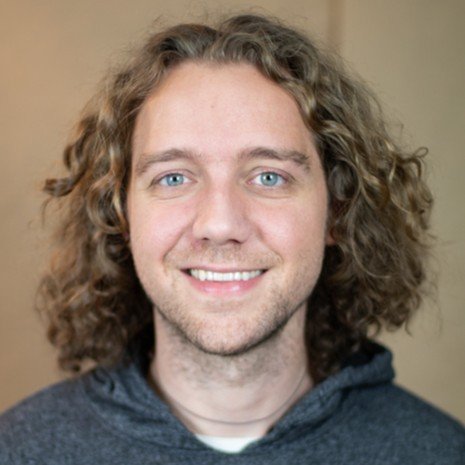From Louisiana to NASA: A Journey in Physics, AI, and Startups
Growing up in South Louisiana off the Mississippi River, I was immersed in a place you might come across if you Google 'Cancer Alley'. It's a region with a significant amount of pollution due to the abundance of chemical plants, one of which my father worked for. Health problems were common in our family and among our friends.
Determined to escape this, I went to Louisiana State University (LSU) where I earned a physics and math degree. Initially, I thought I might become a physicist myself. However, I also had another dream: to lead to a startup.
The Seeds of a Startup Dream
Around the age of ten, the possibilities inherent in technology and startups began to captivate me. My parents gave me an old computer and with it, access to a world beyond my front door. I encountered the diverse and hopeful Bay Area tech culture and it stirred a feeling of optimism in me that was in stark contrast with my surroundings.
The confluence of pivotal events during that time undoubtedly shaped this dream. Consider that Google was gaining momentum just as I was discovering the world beyond South Louisiana. Similarly, the first AI 'winter', a period of reduced funding and interest in artificial intelligence research, was waning.
These experiences combined with remnants of my religious upbringing ignited a desire for something grounded in science and evidence, underscored by prosperity, fresh mindsets, and new tech.
Journey to Becoming a Startup Founder
My journey was hardly linear, however. Initially, I pursued a PhD in quantum computing but ended up working for NASA instead. There, I worked on high-profile missions such as Maven and Curiosity and honed my skills in systems engineering, spacecraft operations, and testing.
I also had the opportunity to work at Northrop Grumman, focusing on a Navy spy plane known as MQ-4C Triton. Here, I further developed my expertise in systems engineering and DevOps while honing my support skills within the cybersecurity and infrastructure spheres.
However, despite the thrill of working in these prestigious organizations, I couldn't escape the feeling that the pace was too slow and the operations too bureaucratic. It wasn't the fast-paced 'fail-fast' environment that I yearned for.
Frustrations aside, these experiences provided the bedrock for the next chapter of my journey: a role with Deliv, a courier delivery service. This startup was aiming to make deliveries within an hour of the order being placed.
Delving into the Realm of Startups with Deliv
Deliv was an exciting venture for me as it marked my first experience working in the breakneck pace of a typical startup environment. Our team went from zero to one million deliveries per day in just two years, an incredibly fast pace when compared with the meticulously slow operations at NASA and Northrop Grumman.
Our rapid success prompted Target to acquire Deliv. Suddenly, I found myself in a unique position at Target, receiving special treatment and undergoing a different training regimen from the rest.
Deliv's successes served as a stepping stone, both for me professionally and for my dreams of founding a company. Following my time at Target, I joined Y Combinator, a startup accelerator, where I founded my first company. It was an intense, transformative journey.
The initial startup process involved numerous pivots, failed products, and unmet customer needs, which instilled a key lesson in me: it's about understanding customer needs and meeting them. The process took a long time, with lots of trial and error, but eventually, I founded ChatOpenSource.
Rising Through The Ranks with ChatOpenSource
My startup, ChatOpenSource, delivers an open-source alternative to chat GPT. It's more versatile and ideal for companies with strict privacy and security needs, such as those in the legal sector. The enterprise world is vast, and while chat GPT focuses on consumer needs, we aim to meet the complex, specific needs of diverse business sectors.
The focus of the startup world is evolving and growing, and centralization of power in the AI industry is becoming an issue. Many major companies want to find a better way, and that is where we aim to provide solutions.
The idea of growing my own startup was once a vague dream. However, through a series of pivots, realizations, and experiments that pushed my limits, I learnt that innovation comes from solving problems for your customers and building products not that you love, but that your customers love.
I would not be where I am today without the lessons learnt from my previous roles, mentors, peers, successes, and disappointments. The journey has not ended, it has only begun, and the ever-evolving field of AI continues to pose new challenges, opportunities, and horizons to explore.
"You can have all the money in the world, but if you see a need in society and you fulfill that need and you make something new, that's like something that gives me goosebumps. That's what it's all about, really."
So, for those of you with a similar dream, even if you don't know any founders, software engineers or people who have left your home state for that matter, remember this — aim to meet the needs of your customers. Focus on addressing compelling issues, find the right distribution strategy and remember that as a founder, you solve problems.
Learn more about ChatOpenSource here.
Listen to the full episode here.

